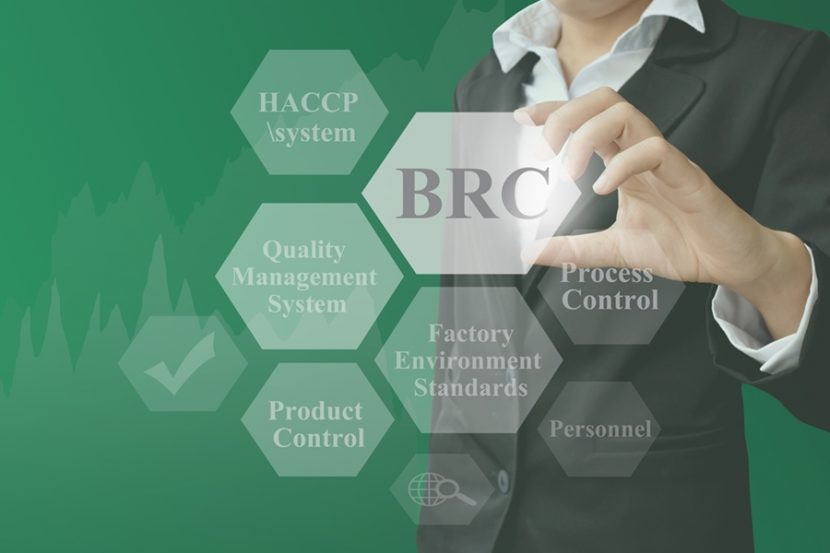BRC Global Standards V.8: New Changes for Improving Compliance
By Lauren Solar
The release of a new BRC Global Standards version is always news in the food safety industry and John Kukoly, Americas Director for BRC Global Standards, says his organization’s new Version 8 brings a substantial change in focus to the work of food companies aiming to maintain compliance.
“The shift we are looking for in Version 8 is that instead of making the plant look spectacular once a year for the annual audit, we want companies to maintain the plant in good, not stunning, condition the whole year round. This will help to ensure the safety of their staff, their brand and their customers.”
At the moment, 10% of audits are unannounced. While Version 8 has not made unannounced audits mandatory, they are becoming more common and Kukoly says this is one way to encourage ongoing vigilance.
These are all problems that can be addressed by improving the company’s food safety culture
The key areas of non-compliance under Version 7 included:
• general plant maintenance: the premises—including walls, floors and ceilings—were not maintained in a clean and hygienic state
• exterior doors were left open, allowing pests and other contaminants into the plant
• non-food chemicals were stored in a manner which allowed contamination
• equipment was not placed so as to allow for easy maintenance and cleaning
• traceability of raw materials, packaging and work in progress
• a lack of supplier approval programs
• failure to ensure that the HACCP plan identifies all relevant potential risks
• process flow diagrams that do not accurately represent the operation
• improper scheduling of internal audits and
• poor document controls
Kukoly notes that these are all problems that can be addressed by improving the company’s food safety culture, and that the underlying theme of most of the changes introduced in Version 8 is to do exactly that. Essentially, this requires active leadership on the part of management, not just a commitment to a policy that will be imposed on employees.
Fostering an internal team approach to food safety issues on a day-in, day-out basis is key, as is committing to continual improvement as monitoring and assessment to identifying gaps or shortfalls in the process. As well as changes to wording around management’s role in developing these procedures, Version 8 includes an additional module for assessing a company’s food safety culture.
“This is challenging to audit, but we are trying to move in this direction,” Kukoly explains.
He would like to see the same culture applied to food defence, so that the whole team is invested in maintaining vigilance every day.
“The US and Canada have some of the best practices in this area,” Kukoly says, “and Version 8 attempts to spread these across the rest of the world.”
Other key Version 8 changes include:
• Expansion of the requirements for environmental monitoring (sanitary design, personnel practices, and operational methods)
• Further expansion of security and food defence systems
• Clarification of the requirements for high risk, high-care and ambient high-care production risk zones
And still other changes in the standard are a result of the new rules introduced by the US in the Food Safety Modernization Act (FSMA), including updated pet food rules, and an additional “FSMA Ready” voluntary module for anyone exporting food into the US.
BRC Global Standards’ Version 8 champions bringing better food safety practices to the industry. It promotes strong leadership in food safety and food defense, because this is the key to making a difference around the world.
About the Author
Lauren Solar is a regular freelance contributor to GFSR and has written extensively on a number of topics for our publication, with particular emphasis on regulation. With more than 30 years of freelance writing and editing experience, she has also written on a variety of topics, particularly in the areas of health and not-for-profit organizations. Because of her own food allergies and her extensive background with allergy advocacy groups, she helped create the Food Allergen Food Safety Training offered by TrainCan and is a certified trainer on this topic. She has also done a great deal of technical and business writing.

-
 FeaturedRisk management
The Cost of a Breach: What a Cyberattack Could Mean for Food Safety Recalls
FeaturedRisk management
The Cost of a Breach: What a Cyberattack Could Mean for Food Safety Recalls
-
 FeaturedRisk management
Securing the Food Chain: How ISO/IEC 27001 Strengthens Cybersecurity
FeaturedRisk management
Securing the Food Chain: How ISO/IEC 27001 Strengthens Cybersecurity
-
 FeaturedRisk management
Revolutionizing Food Safety Training: Breaking Out of the “Check-the-Box” Mentality
FeaturedRisk management
Revolutionizing Food Safety Training: Breaking Out of the “Check-the-Box” Mentality
-
 GFSI Standards
GFSI 2025: Building Trust, Tech-Forward Solutions, and Global Unity in Food Safety
GFSI Standards
GFSI 2025: Building Trust, Tech-Forward Solutions, and Global Unity in Food Safety
-
 FeaturedFood Safety
Integrated Pest Management: Strategies to Protect Your Brand’s Reputation
FeaturedFood Safety
Integrated Pest Management: Strategies to Protect Your Brand’s Reputation
-
 FeaturedFood Safety Culture & Training
No Open Door Policy: Challenges That Impact Pest Control in Food Processing Plants
FeaturedFood Safety Culture & Training
No Open Door Policy: Challenges That Impact Pest Control in Food Processing Plants




